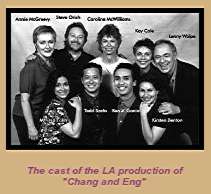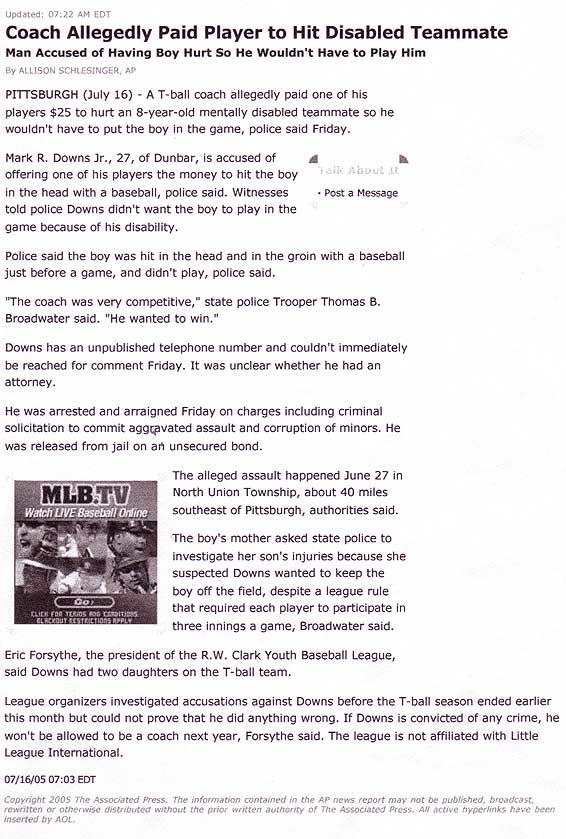CHANG & ENG
music by Stephen Hoffman,
lyrics by Mark Campbell
book by Burton Cohen
Chang and Eng made profitable tours of the
United States and Europe as freaks in a circus. Attached at the sternum, the
famous Siamese twins toured with P.T. Barnum until 1839, where for a small fee
one was allowed to go into a tent and gawk at them. When they “retired” and
became well to do farmers in Wilkesboro, North Carolina, they fell in love with
two of the local minister’s daughters, and the four young lovers wanted to
marry. The townspeople, upon hearing of this, threatened to run them out of
town, but only after they burned their plantation down. The brothers, in
reaction to this threat, agreed to go to Europe in search of a doctor willing
to perform the surgery necessary to separate them. ( Play song.)

I
produced a staged reading of “Chang and Eng,” adapted as a musical for the
stage, in Los Angeles in 1999. I discontinued the endeavor due to business
complications, but the material was very well received, for good reason. The
story of Chang and Eng is an extraordinary example of selfishness and
selflessness existing symbiotically. Chang and Eng are a paradigm of perfect
union. They accepted themselves and each other as totally as their mother
accepted and defended their anomalous configuration. Chang and Eng refused to
shortchange themselves. Suffering the most difficult and bizarre circumstances,
they embraced their lives with courage and gusto, standing “side-by-side rather
than always face-to-face,” confronting the world, its challenges and endless
possibility. If their story doesn't send a positive message to young people
(borrowing an anachronistic expletive), “I'll eat my hat!”
Difficulty is manifest in the machinations of blocking, and,
indeed, movement, itself, but, for obvious reasons, there is little difficulty
capturing an audience with this piece. In the staged reading, spectators were
rapt. Chang and Eng's predicament registers on so many levels that cerebral
reaction all but kicked up an audible buzz. That reaction at first was disgust
and laughter, but quickly changed to pathos and admiration. The expressions on
faces in the crowd were variegated with emotion. At the very least, CHANG AND
ENG graces an audience with a true-to-life demonstration of common decency, as the brothers
afford one another privacy by alternately “going away” in a state of meditation
tantamount to disappearing. Bottom line, Chang and Eng were “winners,” and the
play is, too. I cannot imagine a more effective, more worthwhile vehicle to
draw young people away from the mirror and get them to experience life, looking
right at it. Furthermore, the rare person who may have a proclivity for
committing acts of cruelty against people unlike themselves may think twice
after viewing CHANG AND ENG. The twins are proof positive that people are the
same under God, regardless of configuration.



